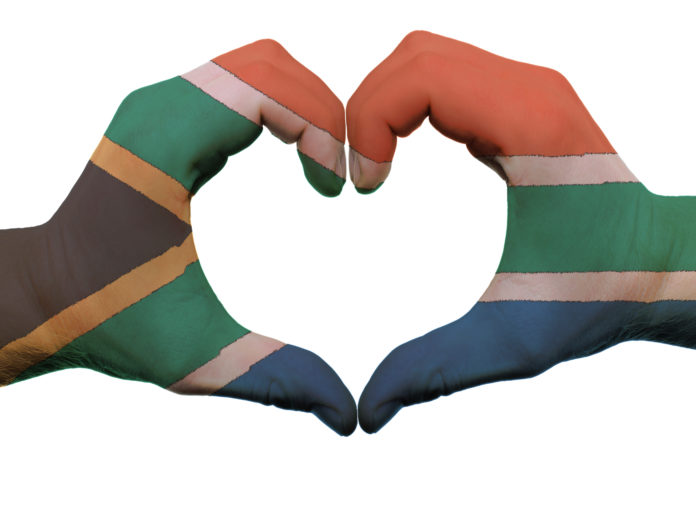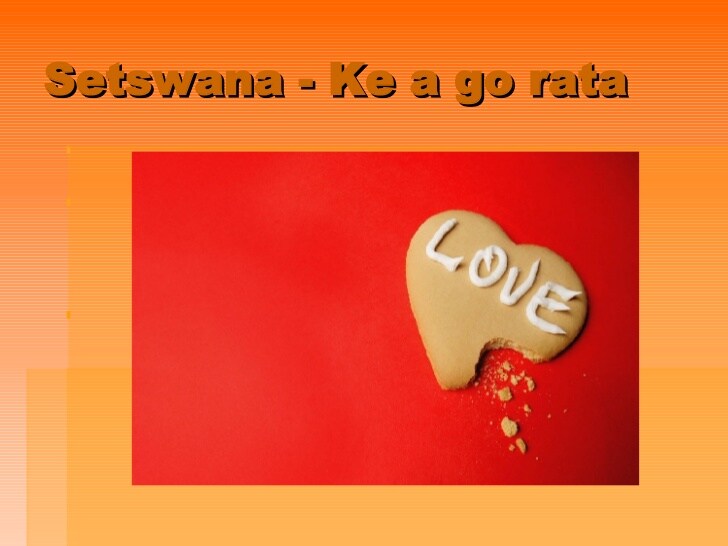Love means different things to different people, hence people express it differently. Similarly, people in different parts of the world speak different languages and they make the expression I love you based on their unique language. Their choice of words may sometimes be affected by their culture or the nature of their language. In South Africa, there are eleven official languages and all have different words for love and different phrases for ‘I love you’.
Saying I love you in Afrikaans, Zulu, Sesotho or any other South African language does not mean a different thing from the English meaning. However, some words in certain languages are ambiguous and can be used to mean different things in different contexts. This makes it difficult sometimes to understand what a person is actually trying to say, except you pay attention to the speaker’s context.
Also, some languages have different words that mean ‘love’ or ‘I love you’. Sometimes, the type of love in question is dependent on the choice of words the speaker uses. Other times, all the words mean the same type of love. Read on to learn how to say I love you in Afrikaans, Zulu, Sesotho, and other South African languages and also the variations common to some of these languages.
Ways to Say I Love You in Major South African Languages
Ek is lief vir jou or Ek het jou life (How to Say ‘I Love You’ In Afrikaans)
I love you in South Africa can be said in various ways and they all mean the same thing. In Afrikaans, the word love is written as ‘liefde’. However, it is spelled slightly differently when used in a sentence. ‘I love you’ is ‘Ek is lief vir jou’ or ‘Ek het jou lief’. Both sentences are simply different ways of saying the same thing. But the first one sounds more natural while the second sentence is a bit dramatic. Nonetheless, they express the same emotion.
Phrases like ‘Lief vir jou’ and ‘Liefie’ are also used to express love. They could be interpreted as ‘love you’, ‘darling’, ‘lovey’, ‘dearie’, ‘sweetheart’, etc.
Ndiyakuthanda (How to Say ‘I Love You’ In Zulu)
In the Zulu language, the word that describes the noun form of love is different from the word used to describe the verb form. ‘Uthando’ describes love as a noun while ‘thanda’ describes love as a verb. ‘Thanda’ also means ‘like’, ‘admire’, ‘wish’, and ‘value’. ‘Cecezelela’ is another verb form for love. Similarly, the word ‘ukuthanda’ is a noun and can mean ‘love’, ‘wish’, ‘desire’, ‘preference’ and ‘willingness’ while the verb ‘fisa’ can mean ‘desire’, ‘wish’, ‘want’ and ‘love’. ‘Ndiyakuthanda’ is the phrase for ‘I love you’ in Zulu.
Ke a go rata’ or ‘kea u rata (How to Say ‘I Love You’ In Sesotho or Southern Sotho)
There are different words for ‘love’ in Sesotho; ‘lerato’, ‘rata’ and ‘marato’. When it comes to making sentences, the word ‘rata’ is more commonly used and it flows naturally. That is, ‘I love you’ becomes ‘Ke a go rata’ or ‘kea u rata’. Just like that of Setswana, there is no definite distinction between ‘I like you’ and ‘I love you’. Both ‘Ke a go rata’ and ‘Kea u rata’ can be used to mean either an affirmation of romantic feeling, deep affection or platonic expression of inclination.
Ngiyathanda (How to Say ‘I Love You’ In Ndebele)
‘Thanda’ is the word for ‘love’ or ‘like’ in the Ndebele tribe. When you say ‘I love it’ or ‘I like it’, additions are made to the original word and it is written as ‘Ngiyathanda’. ‘Ngiyathanda’ is used when referring to your love for other things that are not human. ‘Ngiyakuthanda’ is the correct way to say ‘I love you’ when you are referring to another human. It is considered a sentence filled with deep emotions and should only be used when you really mean it.
Ke a go rata (How to Say ‘I Love You’ In Setswana)
I Love You in South Africa Setswana language is ‘Ke a go rata’. The original word for ‘love’ in the sentence is ‘rata’. Although the people who speak this language, like people from Batswana do not have a problem understanding the conceptual use of the word, there are concerns when the word is considered from the lexical viewpoint. ‘Rata’ can be interpreted literally to mean ‘like’, ‘love’, ‘wish’, ‘will’ and ‘want’. This makes the meaning of the word ambiguous and causes some people to wonder if love is really taken seriously in regions where Setswana is spoken, considering the overuse of the word.
It gets even more confusing when you try to tell someone that you don’t just like them, but you love them. It is difficult to express yourself this way because both ‘like’ and ‘love’ mean the exact same thing ‘rata’. The only way people communicate effectively despite the ambiguity of the word is by deciphering the intended meaning of the speaker.
Ngiyakutsandza (How to Say ‘I Love You’ In Siswati or Swati)
Swati language uses the same words as the Venda language to express love. ‘Ngiyakutsandza’ is the phrase for ‘I love you’.
Ndza ku rhandza (How to Say ‘I Love You’ In Tshonga)
The Tshonga word for love is ‘rhandza’. To say ‘I love you’ in Tshonga, you say ‘Ndza ku rhandza’. The sentence is used to express deep affection or romantic feelings for someone.
Ke a go rata (How to Say ‘I Love You’ In Sepedi)
I Love You in South Africa Sepedi language uses the same phrases as Sesotho and Setswana to express love. Although these languages are not completely the same, when it comes to saying ‘I love you’, Sepedi also says it as ‘Ke a go rata’.
Ngiyakustandza’ or ‘Ndi a ni funa (Venda)
‘Lufuno’ is the word for love in Venda. ‘I love you’ can be said in two ways; ‘Ngiyakustandza’ or ‘Ndi a ni funa’. Both mean the same thing. On the other hand, ‘I like you’ is written as ‘Ndi a ni takalela”.
There are a number of other romantic words you may want to know in venda; ‘Ndi ni funa nga maanda’ means ‘I love you so much’, ‘Ndi do dzula ndi tshi ni funa’ means ‘I will always love you’, Ndi ni funa u fhira zwithu zwothe’ means ‘I love you more than anything, ‘Mufunwawanga’ means ‘My love’, ‘Dingalambiluyanga’ means ‘My sweetheart’, etc.
Ndiyakuthanda (How to Say ‘I Love You’ In Xhosa)
The word for love in the Xhosa language is ‘uthando’. To say ‘I love you’, you say ‘Ndiyakuthanda’. Some other romantic phrases in Xhosa are; ‘Ndikuthanda kakhulu’ which means ‘I love you so much’, ‘Nam ndiyakuthanda’ means ‘I love you too’, ‘Isithandwa’ means ‘darling/ sweetheart’, etc.
I Love You (How to Say ‘I Love You’ In English)
English is regarded as one of the languages of South Africans. It is spoken by 10% of the population, especially those who live in the city and it is mostly used by the government, the media, and for business. The word ‘I love you’ simply retains its meaning and nothing changes.
Summary of the Various Wways to Say I Love You According To Major South African Tribes
- Afrikaans – ‘Ek is lief vir jou’ or ‘Ek het jou life
- Zulu – ‘Ndiyakuthanda’
- Sesotho – ‘Ke a go rata’ or ‘kea u rata’
- Ndebele – ‘Ngiyakuthanda’
- Setswana – ‘Ke a go rata’
- Siswati – ‘Ngiyakutsandza’
- Tshonga – ‘Ndza ku rhandza’
- Sepedi – ‘Ke a go rata’
- Venda – ‘Ngiyakustandza’ or ‘Ndi a ni funa’
- Xhosa – ‘Ndiyakuthanda’
- English – ‘I love you’

